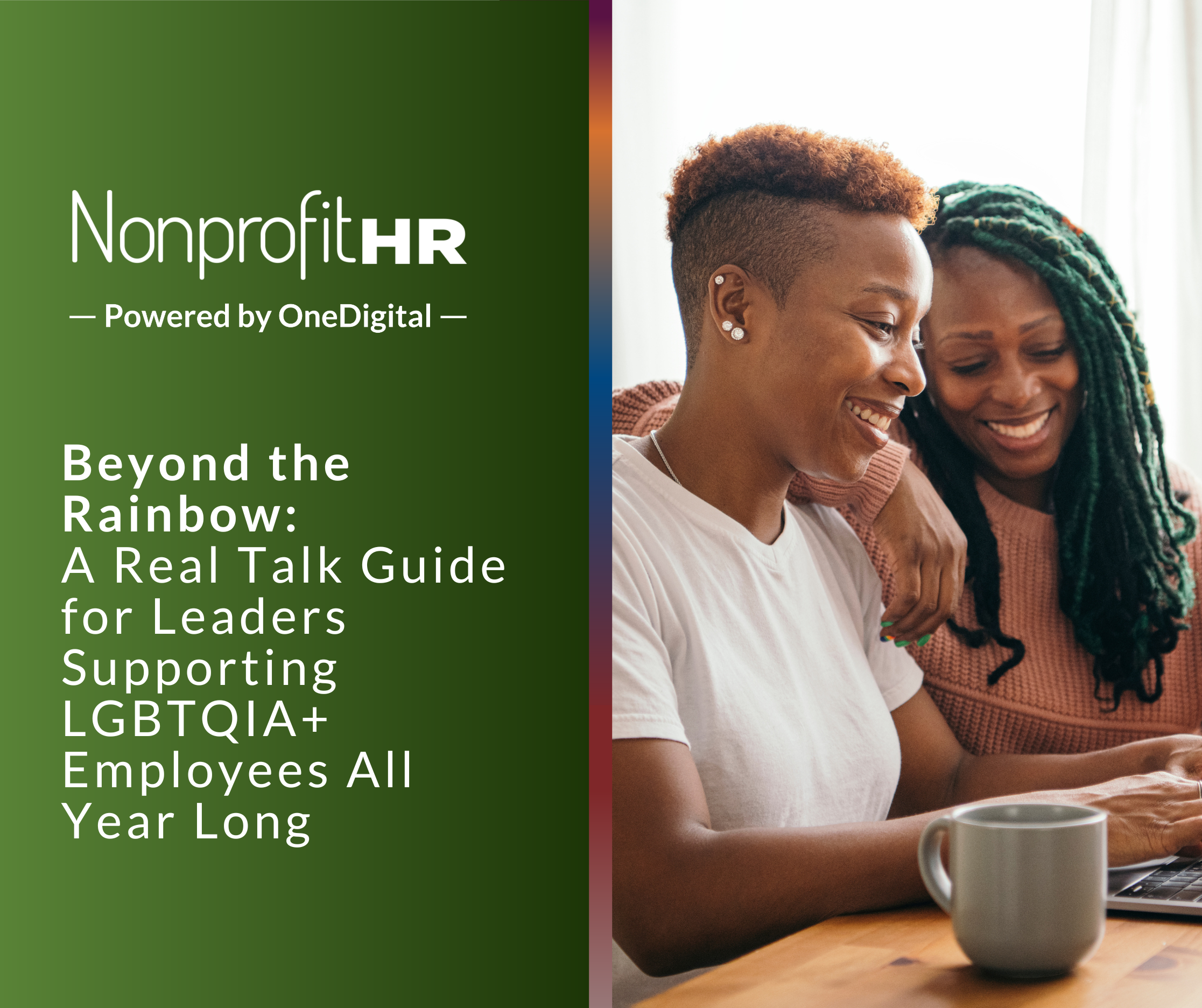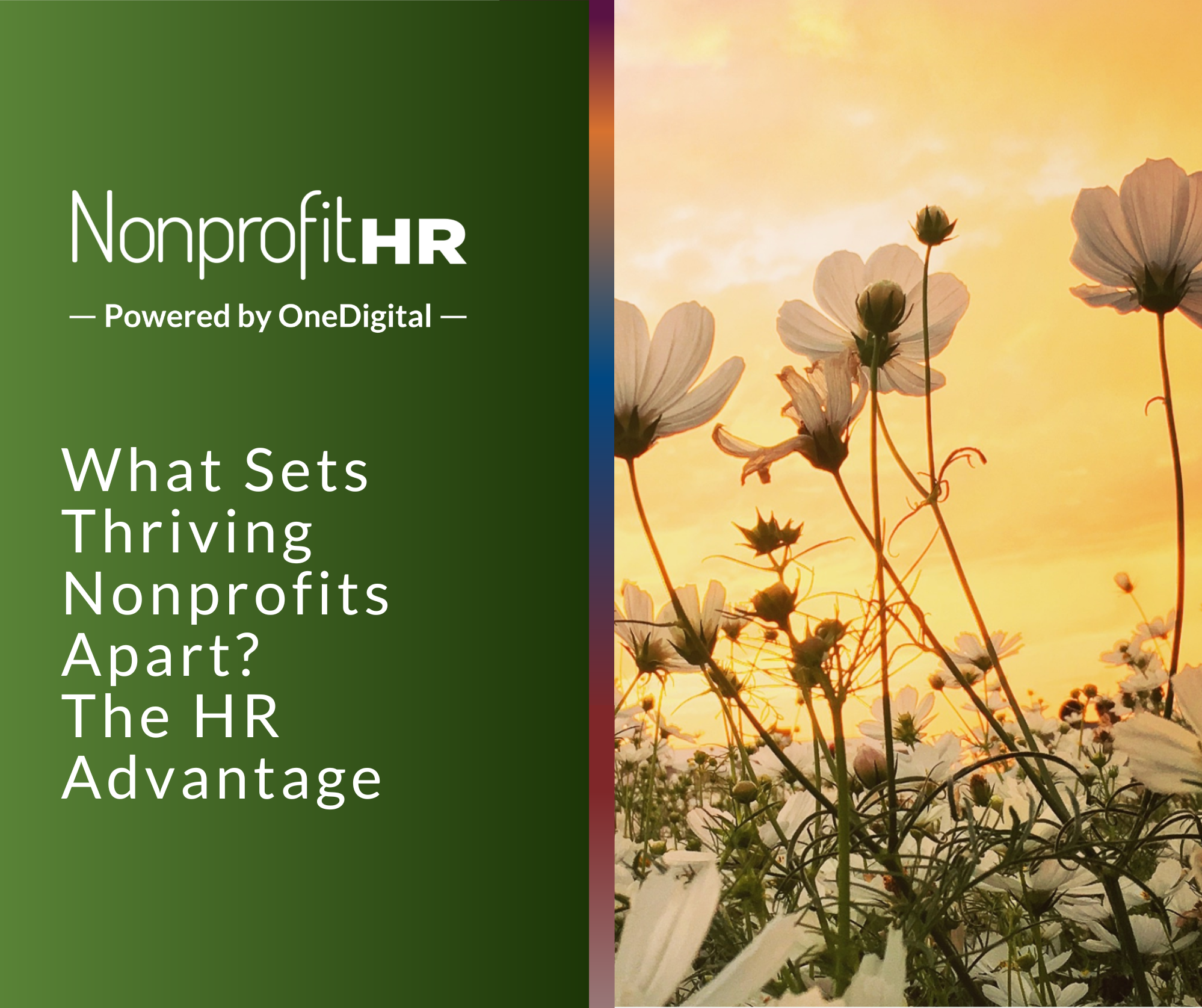WTOP: 5 ways nonprofits can…
In recent years, as corporate America scales back on diversity, equity and inclusion (DEI) initiatives, the nonprofit sector has continued to move forward, particularly in advancing women into leadership roles. As the for-profit world dismantles DEI programs under financial and political pressures, nonprofits have remained steadfast in their commitment to gender and racial equity. This divergence offers social sector leaders a powerful moment for reflection on what makes the sector resilient — and how we can build on that foundation to foster even greater progress.
But this is not a time for complacency. The question becomes: How do we ensure that nonprofit organizations continue to lead by example, and what lessons can we draw from the sector’s successes and challenges to inspire deeper, systemic change across industries, sectors and geography?
Corporate America’s Retreat from DEI
Corporate America’s pullback from DEI has been striking. Budget cuts, layoffs of DEI leadership roles and reduced commitments have become all too common, as companies respond to external pressures. Seramount’s 2024 DEI National Survey shows that, while 76% of employees still support DEI efforts, this represents a drop from 2021 when support peaked in response to social justice movements.
For women and people of color, the consequences are particularly significant: fewer leadership opportunities, worsening pay gaps, and a workplace culture that increasingly devalues inclusivity. The nonprofit sector, however, has remained a beacon of hope, with a long-standing focus on advancing equity in leadership.
The Nonprofit Sector’s Progressive Leadership
In contrast, the nonprofit sector has made meaningful strides in advancing women’s leadership. Women now hold nearly 57% of CEO or executive director positions in nonprofits — far outpacing the 8.2% of women leading Fortune 500 companies. But while representation is strong, challenges such as pay inequity and the underrepresentation of women of color in larger organizations persist.
At Nonprofit HR, we continue to recognize and applaud the work that women leaders are doing across the entire social sector. Our annual Social Impact Women to Watch List highlights trailblazing women who are making transformative impact in their organizations and communities. This recognition not only celebrates individual achievements but also underscores the importance of elevating women into leadership roles that shape the future of the nonprofit sector.
What Nonprofit Leaders Must Consider
Despite the nonprofit sector’s achievements in advancing women, we cannot ignore the ongoing need to strengthen and support leadership for the long term. For nonprofit leaders, the work doesn’t end at representation — it demands action in creating sustainable, equitable environments where diverse leaders can thrive.
1. Deep Integration of DEI into Organizational Strategy
For nonprofits, embedding DEI into every facet of organizational strategy is essential. While it is often intertwined with mission, equity must be part of the strategic core — integrated into governance, programs, funding decisions, operations and decision making. We must ensure that our internal systems reflect the values we champion externally. This means focusing on hiring practices, board diversity and creating inclusive programs and internal organizational cultures, where every individual has the opportunity to contribute fully.
At Nonprofit HR, we’ve seen that organizations that make DEI central to their strategic priorities are more successful in retaining diverse talent and driving innovation. Leaders must ask: How are we holding ourselves accountable to the same equity standards we promote in the communities we serve?
2. Driving Accountability Through Transparency
True equity requires more than good intentions; it demands measurable progress. Many nonprofit organizations have focused on transparency in their external impact but fall short when it comes to internal DEI metrics. Nonprofit leaders must commit to tracking, reporting and addressing inequities within their organizations, particularly around pay and leadership development.
Boards should continue to prioritize equity audits, benchmarking compensation and holding leadership accountable to specific DEI goals. The data must be a tool not only for transparency but for driving systemic change.
3. Creating Leadership Pathways That Support Women of Color
While women occupy the majority of leadership roles in nonprofits, this doesn’t tell the full story—particularly for women of color. Black women and other women of color often find themselves placed in precarious leadership positions, particularly during times of organizational crisis, a phenomenon known as the “glass cliff.” These leaders face disproportionate scrutiny, expectations and challenges, leading to burnout or failure.
Nonprofit leaders must actively create leadership pipelines that provide ongoing support, mentorship and equitable pay. It is not enough to place women of color in leadership roles; they must be set up to thrive, with the resources, training and networks needed to lead confidently and effectively. Boards and executives should consistently assess whether their leadership programs offer long-term sustainability for diverse leaders.
4. Advocating for Systemic Change Across the Sector
Beyond the walls of our individual organizations, nonprofit leaders must advocate for broader sector-wide change. This includes taking an active role in addressing sector-wide pay inequities, advocating for policies that support equitable compensation and fostering collaborations that elevate women leaders across all areas of the social sector.
At Nonprofit HR, we see this advocacy reflected in our ongoing commitment to shining a spotlight on the women who are shaping the future of the sector through initiatives like our Social Impact Women to Watch List. By recognizing and elevating these leaders, we send a message that women’s contributions are indispensable — and that their leadership is essential to the success and sustainability of the sector.
Sustaining Leadership in a Time of Uncertainty
As corporate America continues its retreat from DEI, the social impact sector must continue to lead with boldness and conviction. We cannot afford to backslide on the progress we’ve made. For nonprofit leaders, this means embedding equity in our strategies, holding ourselves accountable, supporting women — especially women of color — at every stage of their leadership journey and advocating for systemic change across the sector.
The nonprofit sector has long been a champion of social justice and equity, and now more than ever, we must continue to set the standard for what true leadership equity looks like. By recognizing, supporting and championing women leaders through platforms like Nonprofit HR’s Social Impact Women to Watch List, we not only celebrate progress but also commit to sustaining it in the years ahead.
Lisa Brown Alexander
Founder & CEO
Nonprofit HR
View Lisa’s bio.






























